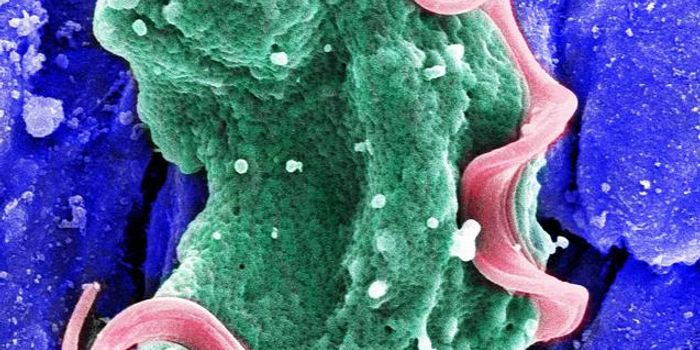New Compound Stimulates Cancer-Killing Invariant Natural Killer T Cells
Stimulating the immune system to better fight cancer and infections is now possible with a synthesized compound called AH10-7. Researchers from the University Connecticut show in their new study how this compound can stimulate powerful immune cells that kill tumors and attack pathogens: invariant natural killer T cells.
Invariant natural killer T (iNKT) cells are known to defend the body against all types of dangers: infection, cancer, and autoimmune diseases like multiple sclerosis and lupus. They are cells of the immune system that experts describe as living in a “poised effector state.” This means that after they are activated, iNKT cells quickly and continuously produce cytokines, chemical messengers of the immune system that either suppress or activate the inflammatory response.
Over the past several years, researchers have been studying ways to better stimulate iNKT cells to protect the body. Research has focused on both natural and synthetic forms of glycolipid ligands known as alpha-galactosylceramides (alpha-GalCers). Alpha-GalCers are particularly gifted at activating iNKT cells because they facilitate the interactions between antigen-presenting cells, like macrophages or dendritic cells, and iNKT cells so they can be activated to fight cancer or infections.
A compound called KRN7000 was the first ever synthesized alpha-GalCer to successfully stimulate iNKT cells. However, KRN7000 initiated the production of various cytokines, and researchers wanted a compound that selectively initiated the release of just one cytokine: Th1, which has anti-cancer activity.
In the new study, scientists introduce a compound called AH10-7. Unlike KRN7000, AH10-7 selectively activates Th1 cytokines, maximizing the benefit of using it to activate iNKT cells. AH10-7 was created with two major chemical modifications to make it so.
"We are providing protocols so that other scientists can rationally design related molecules that elicit desired responses from iNKT cells,” said chemist Jose Gascon.
Study leader Amy Howell has been investigating glycolipids and the human immune system for more than two decades. "One of the goals in this field has been to identify compounds that elicit a more biased or selective response from iNKT cells, and we were able to incorporate features in AH10-7 that did that," she said.
Howell and her team successfully tested AH10-7 in mice genetically altered to imitate the human iNKT response; the synthesized compound was at least as effective as KRN7000 at blocking the growth of melanoma.
Researchers also incorporated advanced structural and 3D computer modeling analysis to evaluate the components of AH10-7 that maximize its success with stimulating iNKT cells. By examining the molecular interaction between iNKT cell receptors and AH10-7, researchers saw several structural factors as providing a foundation for AH10-7’s unique ability to activate iNKT cells.
The present study was published in the journal Cell Chemical Biology.
Sources: Clinical Immunology, Nature Reviews Immunology, University of Connecticut









